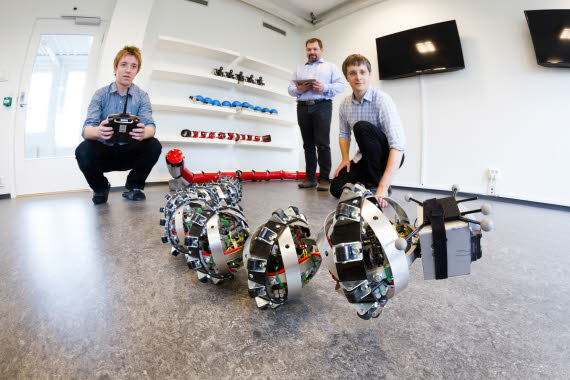European Space Agency may send Mars rover and snake robot

Yes, now various teams of scientists in Europe, China and the United States are developing various methods for studying other planets, in particular, Mars. As you know, NASA has recently achieved the greatest success, but ESA, the European Space Agency, does not want to be left behind. And now this organization is developing a project of pair research of Mars, when a robot snake will help the rover robot.
Of course, there can be a lot of options for such a combination. But so far, experts have identified the most likely plan for the project. This is a robot snake, which is simultaneously a manipulator of the rover, and can detach / join at the right moments. After a rather long period of discussion of the power supply options of the "snake", the option of connecting the partners with a cable was adopted.
')
Yes, no wireless connection, no induction charging. The cable will connect the robot snake and rover. The cable will be transmitted commands from the rover - the "snake". It is clear that first the operator from the Earth commands the rover, and the latter, playing the role of a link (hopefully, not a “damaged phone”) will lead the robot.

Well, finally, it is worth talking about why there is a snake on Mars. The fact is that the patency of such a robot is almost perfect. "Snake" will be able to get into the most inaccessible places for the rover, having studied all the interesting details. After the cable is automatically removed, the “snake” will again become the rover's manipulator. Well, or just take some place on the body of the rover, so as not to interfere with the ride on the surface of the Red Planet.
It is worth noting that the "snake" may also be a salvation for the rover. For example, if he gets stuck in the sands, as happened with the Spirit, the “snake” will turn around a nearby stone (of course, if there is one), and the rover will pull in the cable, pulling itself out of the sand trap.
In general, the project is quite interesting, and it should be noted separately that it is being developed by the Norwegians (SINTEF).
Via sintef
Source: https://habr.com/ru/post/194002/
All Articles